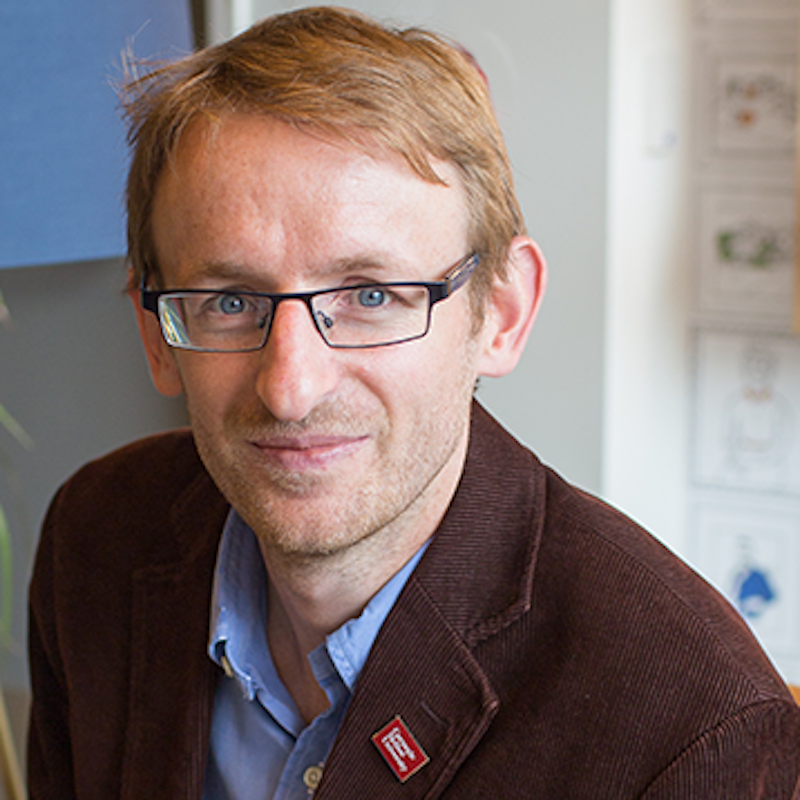
Hamish Gordon
Assistant Professor, Chemical Engineering
Courtesy Appointment, Mechanical Engineering
Bio
Hamish Gordon is an assistant professor in the Department of Chemical Engineering and the Center for Atmospheric Particle Studies. His research interests are focused on the effects of air pollution and natural airborne particles on clouds and climate. He received his first degree from the University of Cambridge in 2009, and his doctorate from the University of Oxford in experimental high energy physics in 2013. He moved to Carnegie Mellon from a postdoc position at the University of Leeds in 2019.
Gordon’s research in atmospheric science is based around developing weather prediction and climate models. He aims to help the models better represent airborne particulate matter and its effect on clouds. To improve the models, he simulates particular regions of interest at high resolution to study atmospheric processes. He compares the simulations with detailed observations of atmospheric properties. He has also participated in the collection of these observations, and in laboratory experiments designed to help improve models. He continues to be involved in the CLOUD experiment at CERN, where he worked from 2013 to 2016. This experiment studies the formation of new particles in the atmosphere from gases such as sulfuric acid. More recently, he also participated in an aircraft study of how smoke mixes into clouds above the south Atlantic Ocean.
Education
- Ph.D., Physics, Oxford, 2013
- M.S., Natural Sciences, Cambridge, 2010
- B.A., Natural Sciences, Cambridge, 2009
Research
My research interests are focused on the effects of air pollution and natural airborne particles on clouds and climate, based around developing weather prediction and climate models. I aim to help the models better represent airborne particulate matter and its effect on clouds. To improve the models, I simulate particular regions of interest at high resolution to study atmospheric processes, and evaluate model performance against atmospheric observations.
Publications
- H. Gordon, P. R. Field, S. J. Abel, M. Dalvi, D. P. Grosvenor, et al. Large simulated radiative effects of smoke in the south-east Atlantic. Atmospheric Chemistry and Physics, 18(20): 15261-15289, 2018
- H. Gordon, J. Kirkby, U. Baltensperger, F. Bianchi, M. Breitenlechner, et al. Causes and importance of new particle formation in the present-day and preindustrial atmospheres. Journal of Geophysical Research: Atmospheres, 122(16):8739-8760, 2017
- E. M. Dunne, H. Gordon, A. Kuerten, J. Almeida, J. Duplissy, et al. Global atmospheric particle formation from CERN CLOUD measurements. Science, 354:1119-1124, 2016
- H. Gordon, K. Sengupta, A. Rap, J. Duplissy, C. Frege, et al. Reduced anthropogenic aerosol radiative forcing caused by biogenic new particle formation. Proceedings of the National Academy of Sciences, 113:12053-12058, 2016
- J. Trostl, W. K. Chuang, H. Gordon, M. Heinritzi, et al. The role of low-volatility organic compounds in initial particle growth in the atmosphere. Nature, 533(7604):527-531, 2016
- R. Aaij …H. Gordon et al, (the LHCb Collaboration), Search for CP violation in D+->phipi+ and D+->K0Spi decays. JHEP, 1306:112, 2013
- R. Aaij … H. Gordon et al. (the LHCb Collaboration), Measurement of the D+production asymmetry in 7 TeV pp collisions. Phys. Lett., B718, 2013
- R. Aaij… H.Gordon et al. (the LHCb Collaboration), Search for CP violation in D+->K-K+pi+ decays. Phys. Rev., D84: 112008, 2011